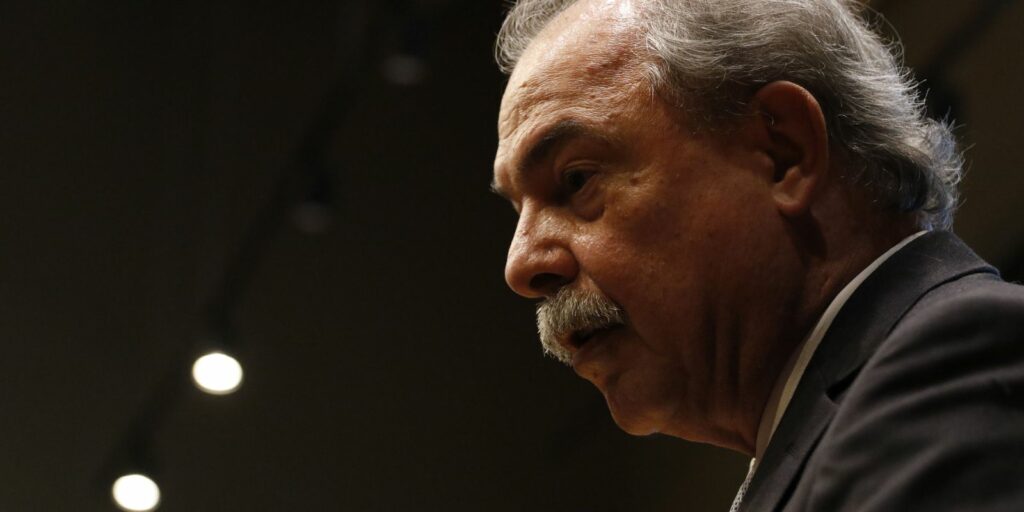The role that the right is going to play in the new constituent process and how it could eventually align itself, as it did under the Rejection campaign, is still uncertain. In this regard, political analysts agree that we are facing two right-wing groups that are programmatically different, where Chile Vamos is seen as a space more willing to dialogue, while Republicans, with a possible slightly more hostile stance towards the process of constitutional change. A scenario that could be beneficial for Chile Vamos, then, in the opinion of analysts, it becomes a moderate player in the party system, and the Republican Party, on the contrary, deploys a tactic aimed at radicalizing the electorate.
For him political analyst and academic from the U. de Talca, Mauricio Morales, the right is a veto actor in the Expert Commission. “Therefore, regardless of the electoral result for constitutional councilors, their role in the new process will be substantially more relevant than in the previous one. Now, there are two right-wing groups in Chile: the traditional right and the radical right. Both decided to compete throughout the country. For some it could be a suicidal decision, but if the center-left made the same decision, then the situation is not so dramatic. Maybe in some regions the total unity of the right would have given them a greater number of seats, but it is preferable that to a pact between Chile Vamos and the Republicans. The mission of Chile Vamos is to disengage from the radical right and move towards center voters. That is the key to its electoral success,” he said.
In this regard, it is believed that Chile Vamos is facing a divergence regarding how to face the May 7 election, in the sense of whether to go beyond the 32% hard right vote or dig there. So, Chile Vamos would be thinking precisely about the fact that they have to focus their speech to go find that moderate sector, without renouncing what they represented in the Rejection, but trying to open up a little more to that electorate that is not from the right. So he believes director of the School of Government and Communications of the U. Central, Marco Moreno.
In his opinion, and instead, “the Republican Party seems to be taking an option to entrench itself in a hard electorate. Somehow, they insist on this option to get closer to people who no longer want a new constituent process and, therefore, they are going to seek to capitalize on that hard vote. The problem is that in Chile we have not had elections with mandatory voting for a decade —with the exception of the plebiscite—, and designing strategies with mandatory voting forces you to broaden your discourse to go to look for others, because everyone is going to vote. And in that sense, I think that Republicans are making a mistake in their strategy, because they are campaigning as if it were a voluntary vote, leading a more polarized political discourse.”
In this scenario, the columnist for The Counter, German Silva Cuadra, believes that in terms of the perception of a more modern right, it can be very positive for them to be separated from the Republicans and the PDG, but it does not guarantee their electoral success. “In electoral terms, I think that the right is going to return to its historical levels. In other words, the more traditional right, which they represent, has never been above 30%, and surely here they will get even less votes, because both Republicans and the PDG can take votes away from them,” he said.
In this regard, and regarding the scenario of political fragmentation, present both in the ruling party and in the opposition, Marco Moreno added that our political system always tends towards fragmentation and, as it is designed, it will be an increasingly common phenomenon. . “So, it is a complicated task with the current scenario that we have, where the parties have little control over what their parliamentarians do. Also, because I think that the Republican Party does not want to blend in too much with Chile. Let’s go, because the Republican Party knows that if it blends in with Chile Come on and they enter there, another party will always appear that will go beyond the right. In Chile there is a political space of the hard right and if that space is left, someone will always come to occupy it. The Republican Party also knows that moving towards the center-right positions implies blurring and losing the prominence it has today. So, there is not much incentive to converge. Kast’s tactic points to a radicalization of the electorate,” Moreno said.
In this way, the behavior that these two rights may have in the coming months is not very predictable. Given the above, questions arise. Will they be willing to align behind the purpose of stopping certain reforms with which they do not agree? Will it have the necessary leadership to seek unity, in times when political alliances are not a guarantee of electoral success? Will this sector play a more prominent role in the new constitutional process, seeking to provide content to the new constitutional proposal? .


















